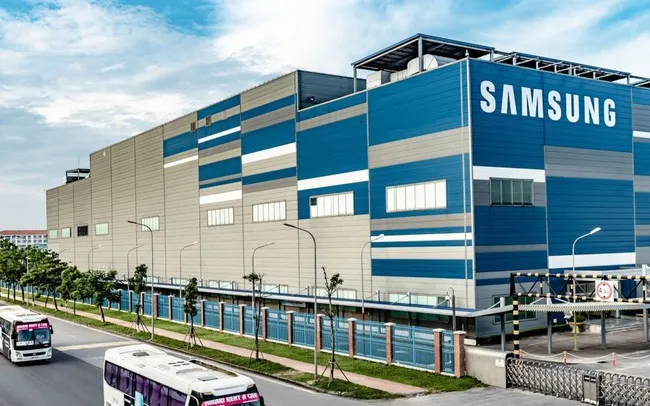
This positive trend stands out amidst a global backdrop of declining FDI inflows. However, while the numbers indicate progress, they are not yet cause for unbridled optimism.
Registered FDI Capital Surges in Vietnam
In the first quarter of 2023, Vietnam saw a substantial increase in foreign direct investment (FDI) capital, reaching USD 6.17 billion. This marked a notable rise of 13.4% compared to the same period in 2022. Among the 21 economic sectors, the processing and manufacturing industry emerged as the frontrunner in attracting capital, with USD 3.93 billion. The real estate business followed closely behind, securing USD 1.58 billion, while the remainder flowed into various other fields. This sustained growth underscores Vietnam's continued appeal to foreign investors.
The annual report on FDI attraction in Vietnam for 2023, published by the Association of Foreign Investment Enterprises (VAFIE), highlighted Vietnam's remarkable performance in drawing FDI amidst a global backdrop of declining inflows. While many countries and regions experienced decreases in FDI, Vietnam witnessed a significant surge in FDI inflows. Despite global FDI increasing by only 3% in 2023, reaching USD 1,370 billion after a 12% decline in 2022, Vietnam saw registered FDI capital soar to USD 36.61 billion, marking a notable increase of 32.1% compared to 2022. This surge in FDI indicates Vietnam's growing attractiveness to foreign investors, particularly amid shifting US FDI flows away from China.
In 2023, Singapore emerged as the top investor in Vietnam, with a total registered capital of USD 6.8 billion, constituting 18.6% of the total registered FDI capital. Following closely behind, Japan secured the second position with a total registered capital of USD 6.6 billion, representing 17.9% of the total. Notably, Hong Kong surged to the third spot with a total registered capital of USD 4.7 billion, while China ranked fourth with nearly USD 4.5 billion in registered capital.
Industrial parks and economic zones continued to attract significant foreign investment, drawing in USD 27.7 billion of FDI capital in 2023. Moreover, there was an increase in the number of new investment projects, adjusted investment capital, and implemented FDI capital compared to the previous year, signaling sustained interest and confidence from foreign investors in Vietnam's economic potential.
Strategies in Vietnam's FDI Landscape
Despite positive trends in FDI inflows, the presence of "eagle" investors, particularly from the US and EU countries, remains notably absent in Vietnam's investment landscape. According to data from the General Statistics Office (GSO), among the 62 countries and territories investing in Vietnam in the first quarter of 2024, Singapore continues to lead with a total investment capital exceeding USD 2.55 billion, comprising 41.3% of the total investment capital. This marks a significant increase of 51.3% compared to the same period in 2023.
Remarkably, in the top 10 countries and territories with the largest FDI investment capital in Vietnam during the first three months of 2024, eight out of ten are located in Asia, with only the Netherlands and the British Virgin Islands representing Europe. This indicates that the investor structure in Vietnam's FDI landscape has not witnessed significant changes. The scarcity of investors from the US and EU countries underscores the ongoing challenge for Vietnam in attracting these key investors, aligning with its strategic goal of "lining the nest to welcome the eagle."
Mr. Nguyễn Văn Toàn, Vice President of VAFIE, provides insight into the anomaly surrounding the absence of "eagle" investors, attributing it to two primary factors. Firstly, the tumultuous global geopolitical landscape and economic downturn have led to a contraction in the scale of global FDI capital. Both developing and developed nations are vying to attract capital from large corporations, prompting them to incentivize and facilitate production and FDI inflows. For instance, the US has reduced its income tax rate from 25% to 21% and reformed investment licensing procedures, while the EU is promoting economic "strategic autonomy" by exerting control over investment capital abroad. These measures have a direct impact on FDI from these countries to Vietnam.
Secondly, US and EU investors are primarily interested in sectors such as renewable energy and high technology, which are areas where Vietnam's legal framework is still evolving. Consequently, investors from these regions are adopting a cautious approach, awaiting a more secure legal framework before committing to investment.
Indeed, in recent years, Vietnam has been proactive in implementing a systematic strategy to screen and attract high-quality FDI. This commitment is underscored by the political determination demonstrated by the highest authorities, as evidenced by goals outlined in Resolution No. 50-NQ/TW of the Politburo and the Foreign Investment Cooperation Strategy for the period 2021-2030. The overarching aim is to attract FDI enterprises from the US and Europe, renowned for their robust industrial development capabilities. These enterprises are expected to play a pivotal role in promoting green growth and driving sustainable development in Vietnam's key industries.
The statistics reflecting Vietnam's FDI attraction through quarterly and annual reports demonstrate growth, which is a positive sign. However, it falls short of being considered an optimistic outcome as the presence of "eagle" investors remains absent in Vietnam's FDI landscape. According to Mr. Nguyễn Văn Toàn, the focus should now be on continuing to reform the institutional environment towards transparency, investing in infrastructure, and enhancing the quality of human resources.
It's imperative for Vietnam to prioritize reforms aimed at enhancing transparency within its institutional framework. Additionally, investment in infrastructure development is crucial to create an enabling environment for foreign investors, particularly those from the US and EU. Furthermore, improving the quality of human resources is paramount, as US and EU businesses entering Vietnam often require skilled labor, which may not be readily available compared to some other countries. Therefore, these efforts are essential to attract and retain high-quality FDI from these key regions.




















